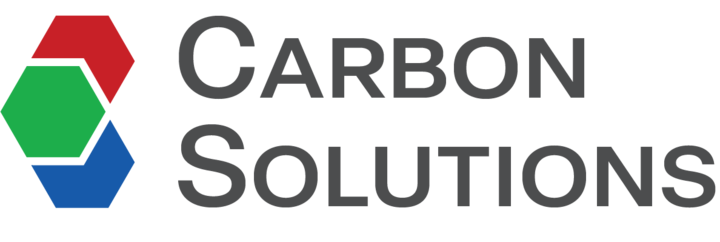Webinar: Get (HEAT) Pumped- A Comparison of Technologies for Renewable Heat

The Local Air Emissions Tracking Atlas (LOCAETA) project is a platform and analysis approach that allows us to understand the impacts of industrial facilities on surrounding communities. In particular, for changes in industrial emissions due to various interventions, we estimate the changes in air pollutant concentrations and the resulting public health impacts, and display them in an interactive Explorer for ease of communication and use. These scenarios may be co-benefits to industrial facility decarbonization, or other interventions such as landfill enclosed flares, the establishment of data centers, or other changes that may affect neighboring communities.
In this recorded webinar, Carbon Solutions and the MIT Concrete Sustainability Hub explore how to reduce investment barriers to large-scale carbon capture, transport, and storage (CCUS) around industrial carbon hubs.
Speakers: Marcos Miranda – Carbon Solutions, Elizabeth Moore – Massachusetts Institute of Technology (MIT)
This session focuses on the concrete and cement sector, using spatial-economic modeling to identify cost-effective strategies for infrastructure buildout and deployment at scale.
Webinar: Air Quality and Public Health Impacts from Industry and Decarbonization: Case Studies using the Local Air Emissions Tracking Atlas (LOCAETA)

The Local Air Emissions Tracking Atlas (LOCAETA) project is a platform and analysis approach that allows us to understand the impacts of industrial facilities on surrounding communities. In particular, for changes in industrial emissions due to various interventions, we estimate the changes in air pollutant concentrations and the resulting public health impacts, and display them in an interactive Explorer for ease of communication and use. These scenarios may be co-benefits to industrial facility decarbonization, or other interventions such as landfill enclosed flares, the establishment of data centers, or other changes that may affect neighboring communities.
In this recorded webinar, Carbon Solutions and the MIT Concrete Sustainability Hub explore how to reduce investment barriers to large-scale carbon capture, transport, and storage (CCUS) around industrial carbon hubs.
Speakers: Marcos Miranda – Carbon Solutions, Elizabeth Moore – Massachusetts Institute of Technology (MIT)
This session focuses on the concrete and cement sector, using spatial-economic modeling to identify cost-effective strategies for infrastructure buildout and deployment at scale.
Webinar: Applying Life Cycle Assessment in Project Design

In this webinar, Carbon Solutions Research Engineer Kat Sale presented an overview of how we apply Life Cycle Assessment (LCA) to support federal, industrial, and community partners. The presentation covered the fundamentals of LCA and showed how it’s used to evaluate emissions, co-benefits, and the full-system impacts of decarbonization strategies.
In this recorded webinar, Carbon Solutions and the MIT Concrete Sustainability Hub explore how to reduce investment barriers to large-scale carbon capture, transport, and storage (CCUS) around industrial carbon hubs.
Speakers: Marcos Miranda – Carbon Solutions, Elizabeth Moore – Massachusetts Institute of Technology (MIT)
This session focuses on the concrete and cement sector, using spatial-economic modeling to identify cost-effective strategies for infrastructure buildout and deployment at scale.
Webinar: Scaling Cost-Effective CCUS Infrastructure for Hard-to-Abate Industries

How can we build cost-effective CCUS infrastructure to decarbonize hard-to-abate sectors like concrete, cement, steel, and chemicals?
In this recorded webinar, Carbon Solutions and the MIT Concrete Sustainability Hub explore how to reduce investment barriers to large-scale carbon capture, transport, and storage (CCUS) around industrial carbon hubs.
Speakers: Marcos Miranda – Carbon Solutions, Elizabeth Moore – Massachusetts Institute of Technology (MIT)
This session focuses on the concrete and cement sector, using spatial-economic modeling to identify cost-effective strategies for infrastructure buildout and deployment at scale.
📅 Originally aired: April 30, 12–1 PM ET
Webinar: Developing a Roadmap for Carbon Capture and Storage in Oklahoma

Webinar: How to Net Zero America Nationwide Cost and Capacity Estimates for Geologic CO₂ Storage

Webinar: Advancing Community Driven Deployment of Carbon Management Technologies

Webinar: CO₂NCORD Demonstration

Demonstration of Carbon Solutions’ CO2NCORD tool. CO2NCORD identifies opportunities and estimates the cost of retrofitting carbon capture at power and industrial facilities.
Webinar: Introducing LOCAETA: The Industrial Emissions and Decarbonization Co-Benefits Data Explorer

Daniel Rodriguez and Amy Jordan present LOCAETA, a tool that quantifies and provides transparent information about the effects on air quality from multiple decarbonization options, e.g., carbon capture and storage (CCS), electrification, and fuel-switching.
Webinar: Finding New Opportunities for Carbon Capture with 𝘊𝘖₂𝘕𝘊𝘖𝘙𝘋

In this webinar, we introduced Carbon Solutions’ 𝘊𝘖₂𝘕𝘊𝘖𝘙𝘋 software! The goal of 𝘊𝘖₂𝘕𝘊𝘖𝘙𝘋 is to identify opportunities and to estimate the cost of retrofitting facilities with carbon capture. Carbon Solutions has developed 𝘊𝘖₂𝘕𝘊𝘖𝘙𝘋 during the past year under an NSF SBIR project. In this presentation, we explained how 𝘊𝘖₂𝘕𝘊𝘖𝘙𝘋 works, demonstrated the software, and previewed results from a 𝘊𝘖₂𝘕𝘊𝘖𝘙𝘋 study that will be released as a white paper later this year.
